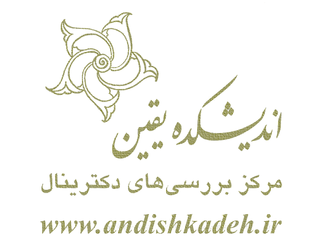هوالحکیم
1. اتیمولوژی:
مفهوم Health از ریشه hāl میباشد که در انگلیسی قدیم به صورت hǣlth و در انگلیسی میانه به صورت heltheکاربرد داشته است، اتیمولوژی این مفهوم به قبل از قرن 12 میلادی بازمیگردد.[1] از ریشهی hāl واژگان دیگر نیز مشتق شده است: Whole, Wealth, Heal[2]
ریشهی هندواروپایی مفهوم Health به kailo- بازمیگردد که به معنای سالم و غیرصدمهدیده بوده است.[3]
دختر Aesculapius به نام Hygeia بود که در یونانی به معنای Healthy و ریشهی کلمهی Hygiene انگلیسی است.[4]نام Hygeia الههی سلامتی در یونان باستان بوده است.[5]
2. ترمینولوژی:
1. تعریف دایرۀالمعارف وبستراز هلث: «وضع مطلوب در جسم، ذهن (یا روح) به ویژه رهایی از بیماریهای جسمی یا درد».[6]
2. تعریف دایرۀالمعارف آکسفورد: «وضعیت فقدان بیماری ویا آسیب.»[7]
3. تعریف اساسنامهی سازمان جهانی تندرستی در سال 1946: «هلث، وضعیتی از رضایت و رفاه کامل جسمی، سایکولوژیکال و سوشال است، و صرفاً به معنای فقدان بیماری یا اختلال نیست.»[8]
4. تعریف هلث در سال 1984 از سوی سازمان جهانی تندرستی مورد بازنگری قرار گرفت: «این مفهوم وسیعتر شد به این مضمون که هر فردی و گروهی توانایی لازم برای درک موفقیت و ارضاء نیازها و تغییر محیط یا کنارآمدن با آن را کسب کند. هلث نه به عنوان هدف زندگی بلکه به عنوان یک وسیله برای زندگی روزمره تلقی میگردد. هلث یک مفهوم مثبت است و علاوه بر مقدورات جسمی، بر منابع فردی و اجتماعی نیز تأکید دارد.»[9]
5. تعریف دیگری از هلث، ارائه گردیده است که آن را به مثابهی «تعادل» و «هارمونی» میان بشر و محیط فیزیکی، بیولوژیکی و اجتماعی میداند که سبب میگردد انسان بتواند به صورت نامحدود همزیستی داشته باشد و به زندگی اجتماعی و اقتصادی بارور دست یازد.[10]
6. تعریف هلث مبتنی بر تلقی داروینیستی عبارت است از: «تطابق با طرح طبیعی خود، آنچنان که انتخاب طبیعی اقتضاء میکند»، زیرا این دیدگاه همهی موجودات زنده را محصول یک تطور بیولوژیک درازمدت میداند.[11]
7. مبتنی بر تلقی آماری: بیماری، هرچیزی است که از نظر آماری غیرطبیعی باشد، و سلامت ]تندرستی[ آن چیزی است که در بیشتر اندازهگیریهای آماری طبیعی مینماید.[12]
8. کالور[13] وگرت[14] در تعریف هلث مبتنی بر هنجارگرایی[15] بیان میکنند که گوهر مفهوم بیماری، متضمن تشخیص این امر است که در شخص چیزی به خطا رفته است. آنها ادعا میکنند که بیماریها، گروه فرعی مفهوم کلیتری هستند که آنها «ناخوشی» میخوانند.[16]
9. کالن[17] و کنون[18] مبتنی بر دیدگاه جالینوسی[19] از هلث، آن را محصول توازن و هماهنگی در کارکردهای بدن تعریف کرده و بیماری را حاصل انحراف و ناهنجاری در ترکیب مایعات بدن ویا ارگانهای بدن میدانند.[20]
10. هلث مبتنی بر طب پیشگیری عبارت است از: «وضعیتی که با یکپارچگی آناتومیک، فیزیولوژیک و سایکولوژیک، مشخص شده، در فرد توانایی ایجاد خانواده، کار و نقشهای اجتماعی را سبب شده، و در نهایت فرد را قادر به کنارآمدن با استرسهای فیزیکی، بیولوژیکی، سایکولوژیکال و اجتماعی مینماید. فلذا هلث، احساس خوشی و تندرستی، و رهایی از ریسک بیماری و مرگ نابهنگام است.»[21]
1. Merriam-Webster's collegiate dictionary, 11th Ed., Massachusetts, U.S.A, Merriam-Webster Incorporated, 2005. Word: Health .
2. Shipley, Joseph; Dictionary Of Word Origins, 1st Ed., New Jersey, USA: Littlefield, Adams Co., 1967, p.177.
5. Partridge, Eric; Origins - An Etymological Dictionary of Modern English, 5th Ed, New York, Routledge Publication, 2006, Page 1486.
6. the condition of being sound in body, mind, or spirit especially : freedom from physical disease or pain
(Merriam-Webster's collegiate dictionary, 11th Ed., Massachusetts, U.S.A, Merriam-Webster Incorporated, 2005. Word: Health)
7. The state of being free from illness or injury.
(Concise Oxford English Dictionary, 11st Edition, Oxford, U.K, Oxford University Press, 2004. Word: Health)
8. A state of complete physical, mental and social wellbeing and not merely the absence of disease or infirmity (Kirch, Wilhelm (Editor); Encyclopedia of Public Health, 1st Ed., New York, Springer, 2008, Vol. 1. p. 515.)
9. The extent to which an individual or a group is able to realize aspirations and satisfy needs, and to change or cope with the environment; health is a resource for everyday life, not the objective of living; it is a positive concept, emphasizing social and personal resources as well as physical capabilities. (The Same.)
10. A sustainable state of equilibrium of harmony between humans and their physical, biological and social environments that enables them to coexist indefinitely and to lead a socially and economically productive life. (The Same.)
11. Because all organisms are the product of a long course of biological evolution, health consists in our functioning in conformity with our natural design as determined by natural selection.
(Veatch, Robert M.(Editor) ; Medical Ethics, 2nd Ed, USA Jones and Bartlett Publishers, 1997, p. 66.)
12. Disease is anything that is statistically abnormal. Health is what has been commonly detected by statistical measurement as normal. (The Same, p. 57)
16. کاپلان، آرتور ال.؛ مفاهیم سلامت، کسالت و بیماری، میانداری، حسن (مترجم)؛ مجلهی سروش اندیشه، انتشارات سروش، پاییز 1383، شماره 11، صفحه 37.
The core meaning of disease involves the recognition that something is wrong with a person. They claim that diseases are actually a subcategory of a more general category, which they call “maladies”. The members of this category include diseases and also injuries, disabilities, and death itself. position is that it is not dysfunction but the perceived the meaning of disease.(Veatch, Robert M.(Editor) ; Medical Ethics, p.69)
20. کاپلان، آرتور ال.؛ مفاهیم سلامت، کسالت و بیماری، میانداری، حسن (مترجم)؛ مجلهی سروش اندیشه، انتشارات سروش، پاییز 1383، شماره 11، صفحه 35.
Health consisted of the attainment of a balance or harmony in the working of the body. Deviations or abnormalities in the composition of bodily fluids or, in later times, of organ systems, connoted disease.
21. A state characterized by anatomical, physiological, and psychological integrity; ability to perform personally valued family, work, and community roles; ability to deal with physical, biological, psychological, and social stress; a feeling of well-being; and freedom from the risk of disease and untimely death.
(Breslow, Lester (Editor in Chief); Encyclopedia of Public Health, 1st Ed, USA, Macmillan Reference, Gale Group, 2002, Vol. 2, p.519.)




